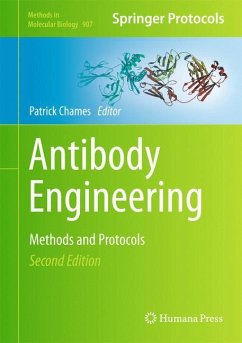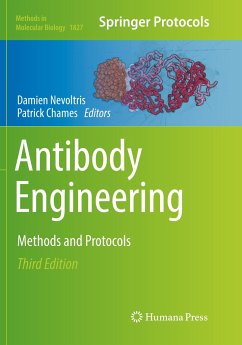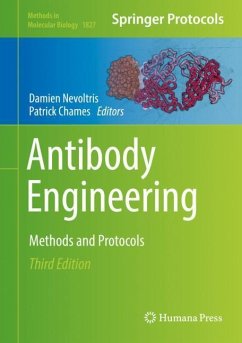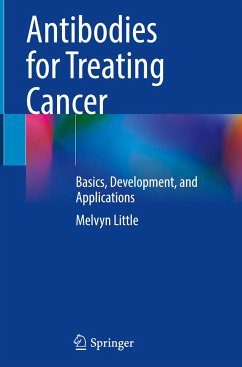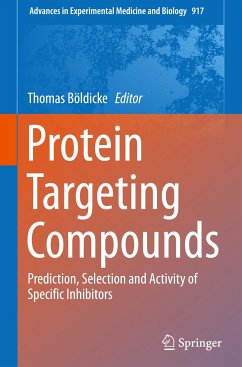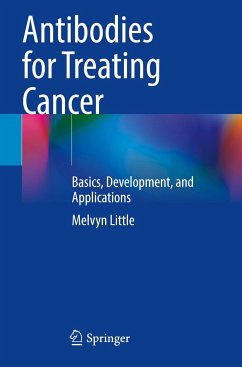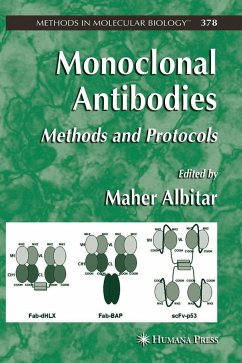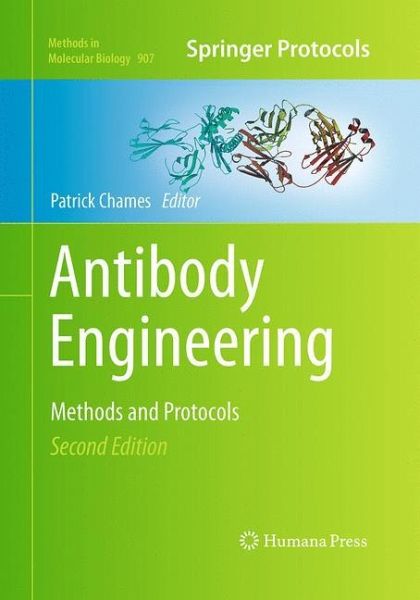
Antibody Engineering
Methods and Protocols, Second Edition
Herausgegeben: Chames, Patrick
Versandkostenfrei!
Versandfertig in 6-10 Tagen
137,99 €
inkl. MwSt.

PAYBACK Punkte
69 °P sammeln!
More than ever, antibodies are being recognized as a major drug modality in a variety of diseases, including cancer, autoimmune diseases, infectious diseases, or even neurodegenerative disorders. Over 30 therapeutic antibodies have been approved and novel molecules are entering clinical trials at an average rate of 50 per year and that is predicted to continue well into the future. Notwithstanding the many achievements already made in the field, there is still a lot of room for improvements for these molecules in terms of activity, and a plethora of approaches have been attempted to optimize t...
More than ever, antibodies are being recognized as a major drug modality in a variety of diseases, including cancer, autoimmune diseases, infectious diseases, or even neurodegenerative disorders. Over 30 therapeutic antibodies have been approved and novel molecules are entering clinical trials at an average rate of 50 per year and that is predicted to continue well into the future. Notwithstanding the many achievements already made in the field, there is still a lot of room for improvements for these molecules in terms of activity, and a plethora of approaches have been attempted to optimize these molecules. Antibody Engineering: Methods and Protocols, Second Edition was compiled to give complete and easy access to a variety of antibody engineering techniques, starting from the creation of antibody repertoires and efficient ways to select binders from these repertoires, to their production in various hosts, their detailed characterization using various well established techniques, and to the modification and optimization of these lead molecules in terms of binding activity, specificity, size, shape, and more. Written in the successful Methods in Molecular Biology(TM) series format, chapters include introductions to their respective topics, lists of the necessary materials and reagents, step-by-step, readily reproducible protocols, and notes on troubleshooting and avoiding known pitfalls.
Authoritative and easily accessible, Antibody Engineering: Methods and Protocols, Second Edition serves as an invaluable resource for both experts and those new to the field, and most of all as a source of inspiration for the creation of the antibodies of tomorrow.
Authoritative and easily accessible, Antibody Engineering: Methods and Protocols, Second Edition serves as an invaluable resource for both experts and those new to the field, and most of all as a source of inspiration for the creation of the antibodies of tomorrow.





